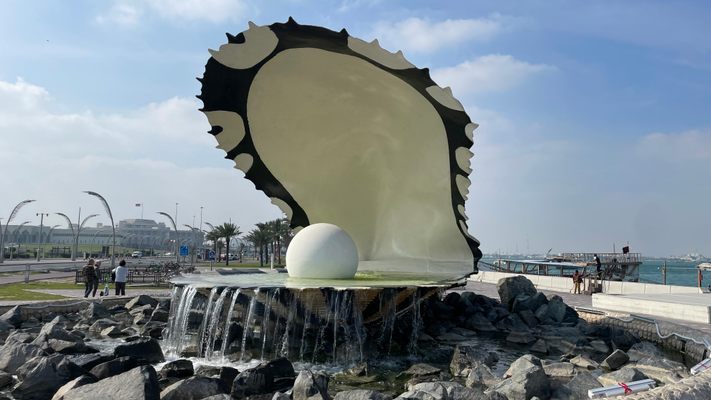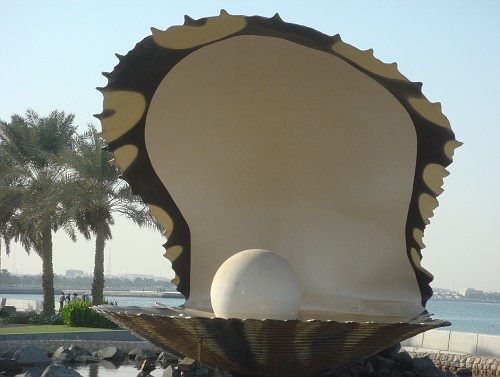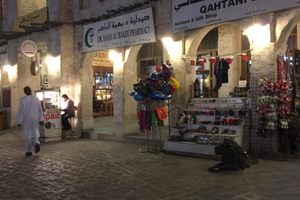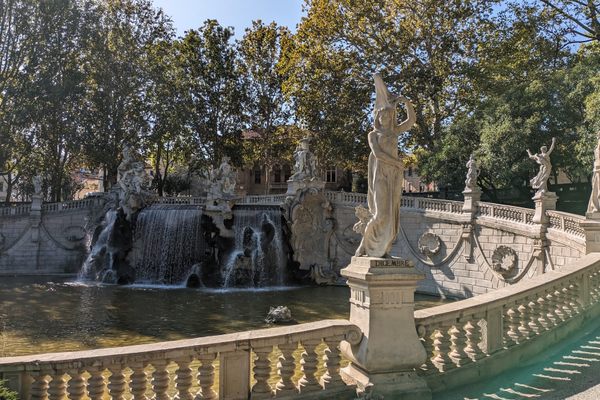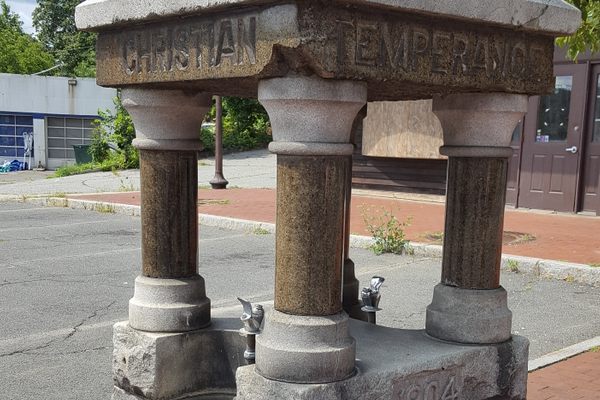About
While oil has made Qatar rich—it boasts the highest per capita income in the world—the tiny Gulf nation hasn't forgotten its seafaring roots.
Prior to the discovery of oil in 1939, pearling was one of Qatar’s primary revenue streams. Not only is it a gamble—approximately one in 10,000 oysters contains a pearl—it was extremely dangerous due to the toll diving took on the body, coupled with the constant threat of lingering barracudas, sea snakes, and sharks nearby.
The pearl's significance is still honored throughout Qatar today. There is a giant Pearl Monument in Doha, a luxury artificial island called The Pearl was built on one of the nation's major pearl-diving sites, and the annual Qatar Marine Festival showcases pearling methods as well as its history.
And located on Corniche Street, just before entering Dhow Harbor, stands the Pearl Monument. The fountain sculpture depicts a giant open oyster presenting a massive pearl in its mouth. This fountain, which lights up at night, provides an ideal photo opportunity while paying homage to Qatar’s pearling history.
Pearl diving was a seasonal activity and profession that took place between June and September each year. Divers and crews would set out on a two-month-long journey as well as a 40-day journey in the hopes of returning with a plentiful bounty. But as Japan began cultivating pearl beds and creating oyster farms in the mid-1920s, pearl prices decreased. Coupled with the discovery of oil, Qatar’s priorities underwent a massive shift, and, as they say, the rest is history.
Related Tags
Know Before You Go
Located at the entrance to the Dhow Harbor, at one end of the Corniche waterfront walk.
Community Contributors
Added By
Published
July 24, 2019




